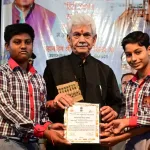As a child, I often heard my parents speak of a future where people could converse through mysterious instruments, a concept my grandmother would dismiss as a fairy tale. In an era when owning a radio was a luxury, such ideas seemed impossible. My own journey with technology began in 1952 when my father purchased a single earpiece radio.
This simple device, which transmitted local programs to one listener at a time, brought me immense joy as I held it close to my ear, captivated by the disembodied voices. Soon after, we upgraded to a large radio set that became the centerpiece of our family gatherings. I would remain glued to it, enthralled by the music and children’s programs that filled our home.
The advent of the transistor revolutionized entertainment, ushering in an age of portability. The 1970s brought another seismic shift with the arrival of the black and white television. This “idiot box,” despite its limited programming, was a marvel, and people would flock to watch their favorite movies.
The introduction of the VCR was a subsequent game-changer, granting us the freedom to watch films and programs at our convenience. Though the bulky size of the VCR and its cassettes was a drawback, technology, in its relentless march forward, soon delivered smaller and more compact alternatives.
As VCRs faded into history, new avenues for capturing and sharing life’s moments emerged. The video camera empowered individuals to become amateur filmmakers, creating their own short documentaries and home movies. Some of the more affluent even invested in projectors to screen their creations, a practice largely confined to educational institutions and select circles.
The 1980s marked a monumental leap with the arrival of the personal computer. Suddenly, a world of information was accessible, and complex tasks could be performed with unprecedented ease. The internet amplified this revolution, connecting people across the globe and democratizing knowledge.
Today, we stand in the era of artificial intelligence, a force that is transforming industries and redefining the very limits of possibility. From virtual assistants in our pockets to self-driving cars on our roads, AI is fundamentally altering how we live, work, and interact.
I vividly recall my parents’ futuristic prediction: “A time is not far off when people can talk on the phone and see each other as well.” It sounded like pure fantasy. In 1965, this journey began for us when my father had a landline installed. It was a primitive system by today’s standards; there was no dial. You simply picked up the receiver and asked an operator to connect your call. Things, however, were about to change with breathtaking speed.
The next great milestone was the Smartphone. This small, wireless handheld device transformed communication, allowing us to connect with friends and family from anywhere in the world. The rapid evolution to the smartphone was nothing short of miraculous, turning yesterday’s fairy tales into today’s reality. Video calls made it possible to see loved ones thousands of miles away, rendering telegrams and letters obsolete. Platforms like WhatsApp have taken over, and the art of letter-writing has become a nostalgic memory.
Today, the smartphone is an indispensable extension of ourselves. It is no longer just a communication device but a comprehensive entertainment hub, a personal assistant, and a gateway to the world. The significance of this device in our lives is undeniable, perhaps even rivaling the importance of human relationships. We might go weeks without seeing our loved ones, but the thought of being without our Smartphones is, for many, unimaginable. Technology has shrunk the world into a global village, or perhaps even a single bedroom, where distance is no longer a barrier.
The technological revolution shows no signs of slowing. We are now designing robots with humanoid features, capable of performing a vast range of tasks. Programmable and customizable, these machines are becoming integral to our lives—serving us, entertaining us, and even offering companionship.
AI-powered robots are already being deployed across industries, from healthcare to manufacturing, and their role is set to expand. It is no longer a stretch to imagine a future where humans form romantic relationships with robots, complete with weddings and ceremonies. Yet, the reliance of these advanced machines on a constant source of energy serves as a reminder of the fragile nature of our technological creations.
Reflecting on this incredible evolution, I am struck by the breathtaking pace of progress I have witnessed firsthand. From the humble earpiece radio to intelligent robots, each innovation has profoundly reshaped our world.
The journey has been remarkable, and the future promises to be even more extraordinary. As we continue to push the boundaries of what is possible, one thing is certain: technology will remain an integral and ever-transforming force in our lives.
(Author is a columnist and can be reached at: [email protected])








